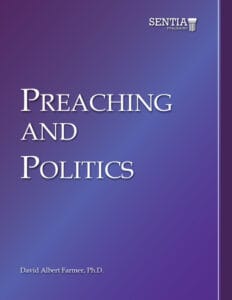
Once I received a card from a friend who miswrote a Bible reference. Instead of finding the encouragement that God is merciful to me as one of his own (1 Peter 2:10), I came face-to-face with the uncomfortable declaration that God will punish those who follow the corrupt desire of the flesh (2 Peter 2:10). Whether we are just beginning to familiarize ourselves with the Bible, or are intent on reading it through from cover to cover, it takes a superhuman effort to completely avoid the awkward parts.
Whether we are just beginning to familiarize ourselves with the Bible, or are intent on reading it through from cover to cover, it takes a superhuman effort to completely avoid the awkward parts.
The issue that highlighted to me the need to rediscover the unhighlighted parts of my Bible was the refugee crisis. Watching the news reports, I was reminded of something I had read somewhere, but I couldn’t put my finger on quite where. Then I visited Lebanon.
A refugee family warmly welcomed me into their home. At first sight it was little more than a few wooden posts with plastic sheeting stapled onto them and a threadbare strip of carpet on the cement floor. The family were from Aleppo in Syria, and what few belongings I could see around the home were all they had managed to carry away with them after they were forced to flee. A bomb had exploded in the bakery near their home. They were worse than poor: they were deep in debt, because they’d had to borrow money from loan sharks to pay for a lifesaving operation for their young son. With the mother heavily pregnant, I could not imagine how this family was going to survive the coming winter.
I frantically searched my Bible for some encouraging words to bless them with, but my favorite orange-highlighted verses seemed rather hollow. I flicked past “I have come that they may have life, and have it to the full” (John 10:10), and “My yoke is easy and my burden is light” (Matthew 11:30). Although these promises were no less true, they suddenly seemed insufficient. Where could I find anything in the Bible that could speak to someone in the middle of such a terrible situation?
What I couldn’t get out of my head as I stayed with this family as winter approached was the picture of Joseph and pregnant Mary, about to have her first baby in a shack, far from home, with only the belongings they could carry while a corrupt king made plots that would see children die and families become refugees. The words “Merry Christmas” could not have felt less appropriate.
When I returned home to my safe, semidetached, centrally heated, digitally connected house in the UK, I could not shake this idea from my mind. It was not that the treasured Bible verses I had grown up loving so fondly were untrue; it was just that the rest of the Bible suddenly seemed a lot more relevant. Not just for a family in fragile circumstances, fleeing ISIS and the bombing campaign of President Assad, but also for the rest of the world, faced with these strange and terrible times.
It was not that the treasured Bible verses I had grown up loving so fondly were untrue; it was just that the rest of the Bible suddenly seemed a lot more relevant. It was time for me to rediscover the stranger parts of my Bible.
It was time for me to rediscover the stranger parts of my Bible. The parts lurking between the highlighted sections. The black and-white verses. The angry parts. The eccentric parts. The politically incorrect parts. The forgotten parts. The horrific stories of executions, displacement, genocide, and depression—stories that sadly reflect much of the world today. Although I had always believed them to be just as inspired as the safe, cozy parts of Scripture, I had been inclined to avoid them for the same reason I often turn the television off when I hear the words “Viewers may find some scenes distressing.” Some truths had seemed unnecessary to dwell on, just too disturbing for my otherwise peaceful, comfortable life. But now it was time to face up to them.
It was time to look at what I had long considered to be the “lowlights” of the Bible. And as I read those passages, it turned out that I had indeed been missing something—that it was precisely in these places that God turned up, although often unannounced, uninvited, and unrecognized. Suddenly I came across countless passages that talked about God being unpredictable, unfathomable, uncontainable, untameable. He is ineffable, sublime, mysterious, awesome. He is beyond compare and beyond description and beyond analogy. God tells us quite clearly, “My thoughts are not your thoughts, neither are your ways my ways” (Isaiah 55:8). Had I been so keen to know God my Father, Lord, Friend, and Savior that I had missed the Bible’s consistent teaching that God is also other, higher, stranger?
As I explored the more difficult passages of Scripture, I discovered an unlikely narrative arc flowing through the whole one that challenged me, that undid some of my most cherished prejudices and made me question the parts of the Bible I thought I knew so well. This narrative that spans the centuries and crosses continents contains a thread of deliberate strangeness. It is full of misery but also full of mystery, packed with the weird but also somehow weirdly wonderful. Through the more perplexing, stranger stories and more difficult incidents related in the Bible, I discovered a God who cannot be fully pinned down, explained, or predicted. Traveling the inhospitable terrain of much of the Old Testament, I discovered there was much to learn about the hospitality of God. In the more fearsome passages, where God turns up as a stranger, I began to hear his offer of an opportunity too good to turn down.
Through the more perplexing, stranger stories and more difficult incidents related in the Bible, I discovered a God who cannot be fully pinned down, explained, or predicted.
When Adam and Eve hid in fear of the consequences of their disobedience, for example, God turned up not as a friend, but like a stranger they hardly knew, cursing them and banishing them from their home. When Abraham and Sarah feared they would never have a child, God visited them in the form of three strangers and, in a curious postscript, destroyed a city. When Jacob was afraid of his brother, God turned up in disguise to fight him, leaving him permanently injured. When Gideon was in hiding, afraid of his own shadow, God turned up to this anonymous no-one to persuade him to lead his people into battle.
When Isaiah was fearful for the state of his nation, God turned up in a blaze of glory to give him a message that nobody would listen to. When Ezekiel was afraid he was far away from a place where he could worship God, God turned up with wings and wheels—and followed up with all sorts of weird demands. When bereaved Naomi was fearful for her future, the one thing she could not see was God at work. When Mary was afraid that she would be rejected, God turned up in a way nobody expected. When Cleopas was afraid that all hope was lost, God turned up as a stranger and turned his world upside down.
In all these people’s stories, what seemed fearful turned out to be the greatest opportunity of their lives. They didn’t get easy victories over their circumstances, but they did get to be part of something bigger that God was doing. Somehow, it was as they encountered God in the form of a stranger that God drew close to these unlikely people, and in the most unexpected ways. It seems that when God turns up unannounced, uninvited, and unrecognized, that is precisely when something truly revolutionary is about to kick off.
Krish Kandiah (PhD, Kings College London) is the founder and director of Home for Good, a UK charity finding homes for foster children and young refugees. An international speaker, he teaches regularly at Regent College and Portland Seminary, and is the author of several books, including Paradoxology and Home for Good. Krish is the vice president of Tearfund, a Christian relief and development agency. Previously, he was president of London School of Theology and also on faculty at Oxford University. He has worked with students in the UK with UCCF, and in Albania with IFES. Krish lives with his wife, Miriam, and their seven birth, adopted, and foster children.


